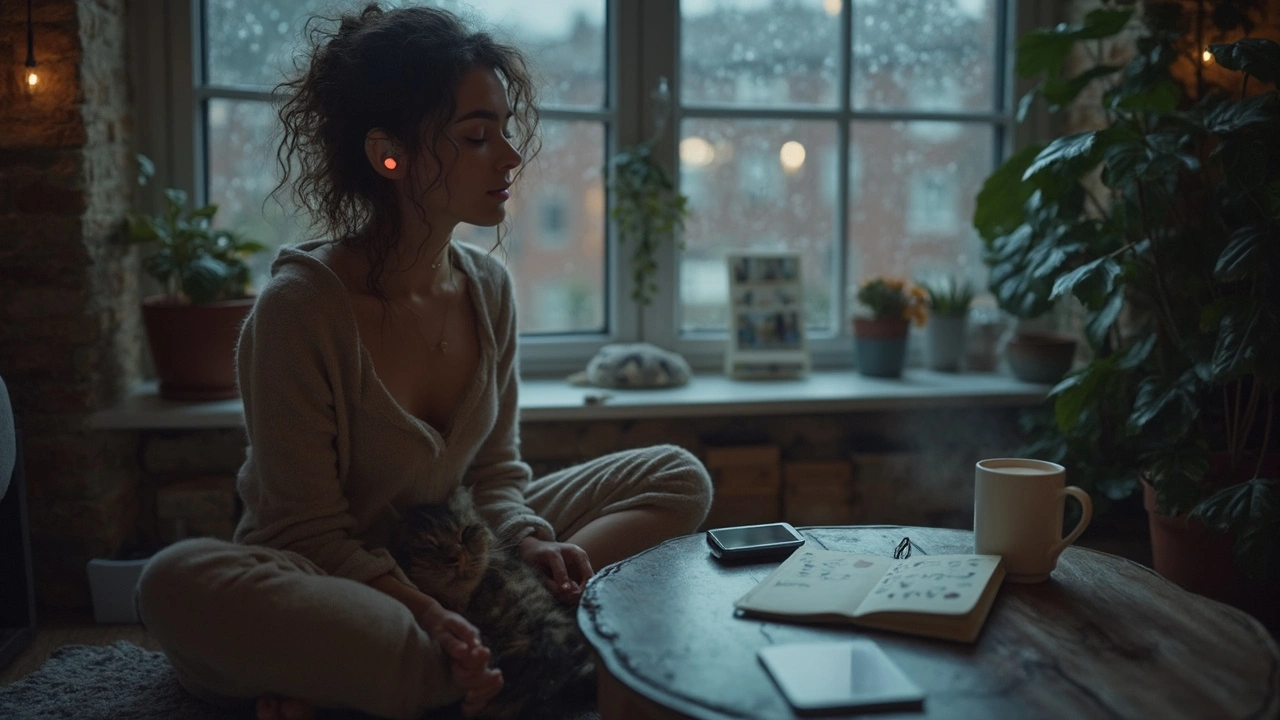Anxiety: Practical Ways to Calm Your Mind
Anxiety doesn't mean you're broken. It's your brain reacting to real or imagined threats. The good news: small, specific actions change how your body and mind respond. Use these straightforward tools to lower sharp spikes and build steady calm over time.
Quick steps to calm right now
If your heart races, try 4-4-8 breathing: inhale 4 seconds, hold 4, exhale 8. Repeat four times. Then ground with 5-4-3-2-1: name five things you see, four you can touch, three you hear, two you smell, one you taste. These moves reset your nervous system fast.
Use a short body scan: notice feet, calves, thighs, hips, torso, hands, arms, neck, face. Release tension where you find it. Ten breaths and you’ll often feel noticeably calmer.
Daily habits that cut anxiety over time
Build routines that tell your brain the world is safe. Start with sleep: aim for consistent bed and wake times and avoid screens an hour before bed. Move your body daily—even a 20-minute walk lowers stress hormones. Eat regular meals; avoid long gaps that spike worry and blood sugar swings.
Practice mindfulness for a few minutes every day. Apps can help—try guided sessions when you’re new. Journaling for five minutes each evening helps you spot worry patterns and shift unhelpful thoughts. If you find certain thoughts repeat, write them down and ask: what’s the next small action I can take?
Creative activities like drawing, playing music, or simple crafts work differently than talk therapy. They give your mind a new channel and reduce rumination. If you’re curious, our articles on creative arts therapies explain how to get started at home.
When anxiety feels tied to health worries, try limits: set a single 15-minute "worry check" each day to research or note concerns, then close the tab. That contains spirals without ignoring problems. For persistent health worries, see a clinician—health anxiety responds well to targeted therapy and clear medical checks.
Use social support. Tell one trusted person what helps—walks, short calls, or a weekly check-in. Isolation amplifies anxiety; gentle connection reduces it.
Know when to get professional help. If anxiety stops you from working, sleeping, or caring for yourself, reach out to a mental health pro. Therapies like CBT, creative arts therapy, and guided relaxation have clear track records. Ask about brief plans and practical homework so therapy fits your life.
Pick one small practice today: five minutes of breathwork, a 10-minute walk, or a nightly two-item journal. Small wins add up and change how your brain learns to handle stress. You don’t need to fix everything at once—start with a step you can repeat.
Explore short reads here: 'Mindfulness Techniques for Stress Relief', 'Health Anxiety: How to Fight the Fear', and 'Meditation for Emotional Wellness.' Each gives quick exercises and clear next steps. If you prefer tools, try a guided app, a local therapist who offers brief CBT, or a creative arts group. Small regular choices shift your nervous system and give real relief.
Biofeedback for Mental Health: HRV Training, Neurofeedback, and Real-World Steps That Work
Curious if biofeedback can ease anxiety or low mood? Here’s what works, the science, simple steps to start at home or with a clinician, and how to track results.
View MoreRelaxation Techniques to Conquer Fear and Anxiety
This article breaks down practical relaxation techniques designed to help you manage fear and anxiety. You'll learn how everyday habits, like mindful breathing and muscle relaxation, can make a real difference. The article dives into simple steps you can use anytime, anywhere, to calm your nerves. It also gives tips on creating a calming environment and identifying personal triggers. By the end, you'll have a toolkit of tactics to help you face stress and anxiety with more confidence.
View More






